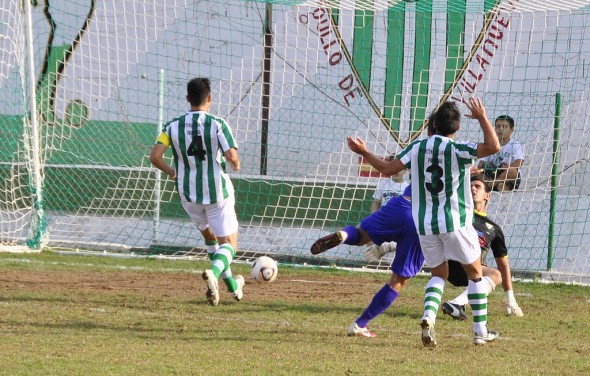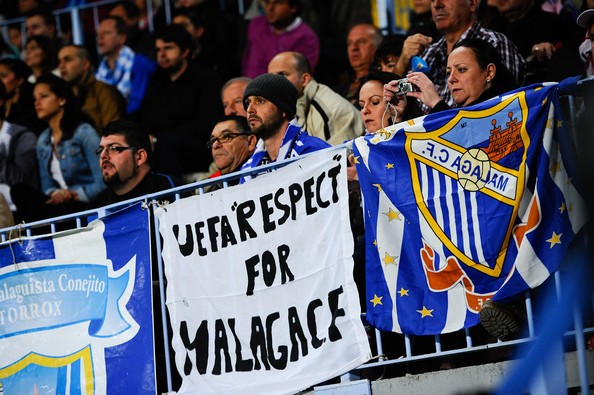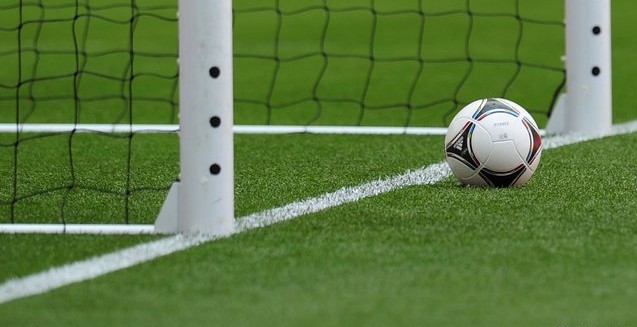Death of a Football Club – How lies and broken promises ended a dream
-
Updated: 31 May, 2012


Last Sunday the inhabitants of a small town in Extremadura celebrated a unique success in the 44 year history of their football club, when CP Arroyo gained promotion to Spain’s Segunda B division for the first time ever. However the resignation of president Juan Bermejo the following day has plunged the club into uncertainty, with many fearfully drawing parallels with what happened to the last team from the region to gain a similarly historic promotion to Spain’s third flight.
Last June a crowd of over 2,000 crammed into Sporting Villanueva’s ramshackle Estadio Municipal, around 100 miles south of Arroyo, to witness them make it to what was meant to be the promised land. Just seven months later the club was withdrawn from the league, when all the players exercised their right to leave during the winter transfer window. So how did it all go so wrong?
Like Bermejo, Sporting president Jose Maria Perez Hurtado had invested quite heavily in the team that season, but one could only speculate as to why he had bothered to do so given that he then decided that he could not afford to fund what was to be Sporting’s first ever Segunda B campaign. Within days of winning promotion, his decision to slash the budget led to the departure of the entire squad and the manager, and at that point he began to suggest that his club would not be taking up the place which its now former players had fought so hard to earn.
Such reluctance is perhaps understandable, given the huge additional expense to Perez Hurtado of round trips within mainland Spain of up to 800 miles to play their new opponents, as well as two trips to northern Africa. However the question remained amongst Sporting supporters: why spend big if you cannot afford to go up?
Whatever the owner’s motivation, it seemed likely that Sporting would be staying put in Tercera right up to just before the deadline to confirm their intentions was to elapse. What followed ultimately proved to be more disastrous than had they done so. In late July it emerged that two brothers from Barcelona had taken over the ownership of the club, and that the club’s founder had relinquished all involvement.
Everything seemed to be more or less going to plan at the outset. New manager Albert Ferri, who had been appointed by Perez Hurtado on the same day that he ceded control of the club, hastily assembled an entirely new squad of players, and on August 21st the team duly commenced the season with a local derby against Badajoz. Although it took them until their eighth game to record their first victory, they lost only two of their first seven, and thus looked far from out of place in their new surroundings.
However with hindsight the alarm bells should have been ringing from the very start with regard to Jordi Garcia and his brother Francesc. Within days of assuming control, he was promising a budget of 360,000 euros for the year, but it was clear that he expected the local government to pay a significant slice of it.
By early September that budget had apparently risen to 400,000 euros in an interview which Garcia gave to Spanish football website masliga.com, which would have been news to the players as they had still yet to see any of it. By late October extraordinary stories were emerging of the lengths to which the coach rather than the owners was resorting to keep the club afloat, paying a player’s mortgage, buying kit and subsidising travel to away games, support which by this stage had already cost him over £6,000.
It was at this point that almost the entire squad were left with no choice but to move into the Estadio Municipal’s changing rooms, having received on average only £200 since the beginning of August, yet with nowhere to go until the transfer window reopened in January. There they stayed in incredibly cramped conditions for almost two months, sleeping on mattresses on the floor and relying on the goodwill of the town’s population for food and drink. Ferri set up residence in the club’s doping control room in support of his players, and revealed that he had been threatened and had his door kicked in for refusing to leave the club as Jordi Garcia had demanded.
It is highly doubtful as to whether the brothers ever had the money to pay the bills, and indeed there are some who claim that their only intention was to use the club as a money-laundering exercise. Whatever the truth of the matter, it seems that at this point they decided out of sheer spite to run the club into the ground. They refused to hand over control unless they were paid to go away, a laughably contemptuous approach given that there was very little evidence to support their claims that they had invested 70,000 euros since their arrival.
And despite the efforts of the Spanish Footballers Association and even the mayor of Villanueva to find a legal means of annulling their ownership of the club, there was ultimately nothing they could do to make them leave. The club was eventually excluded from the league in January, after twice failing to fulfil league fixtures once all their players had departed.
Bermejo insists that a similar scenario could not unfold at Arroyo, and that he will be keeping a much closer eye on developments than Perez Hurtado did at Sporting (he has already indicated that he will continue with his shirt sponsorship deal). He also points out that the club has 850 members, far more than Sporting ever had, and that this should be more than enough to finance a Segunda B campaign. However the fact remains that he has ploughed more than a million euros into the club in his four year tenure, and has estimated that 600,000 euros will be needed for next year’s Segunda B campaign.
As well as the demise of Sporting this year, football in Extremadura witnessed a similarly spectacular fall from grace last March, when Segunda B side AD Cerro de Reyes was wound up after a change of ownership which ultimately also signalled the beginning of the end. With this in mind, supporters of CP Arroyo will no doubt be fervently hoping that lightning does not strike for a third time in the coming weeks and months. It may well be that the most prudent course of action, at a time when Spain remains deep in the financial mire, is to decline the promotion and stay put in Tercera.





2 Comments
You must be logged in to post a comment Login